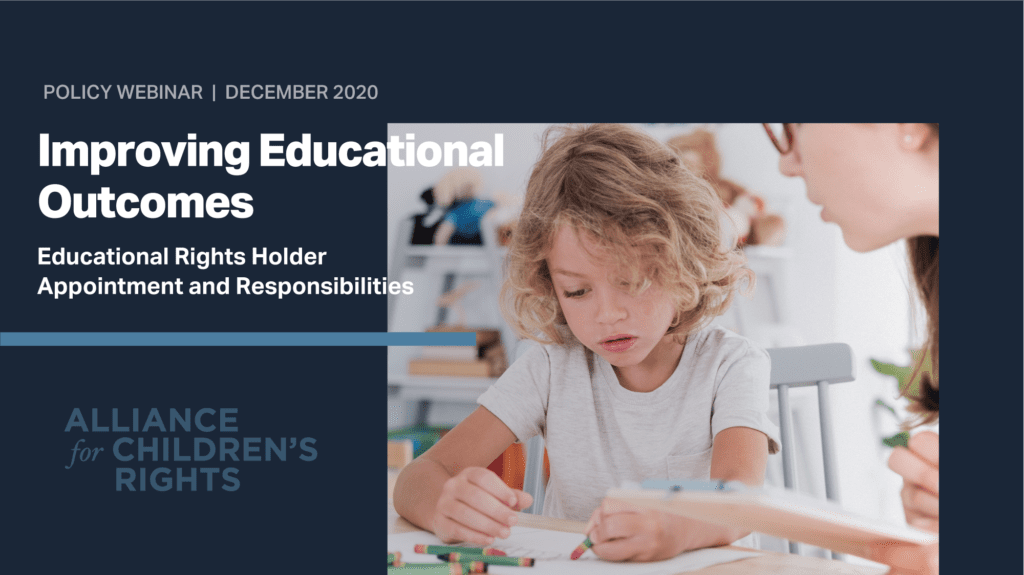
The webinar either no longer exists or an error has occured.
This webinar focused on the importance of an active Educational Rights Holder (ERH), and how to ensure they are appointed for each child. Panelists discussed new ERH forms and how they can play a role in ensuring that child welfare, probation, local education agencies, and ERHs can work collaboratively to support the child’s education.
Panelists also provided details on the new flexibilities to waive participation requirements, the financial support available to youth who turn 21 during the current fiscal year, and new housing supports and flexibilities in approving housing units to better support those youth re-entering care or transitioning between placements. The webinar covered best practices from the field, practice tips for attorneys, and recommendations to support and address housing stability for youth in EFC and successful planning and transitions out of the EFC program.

